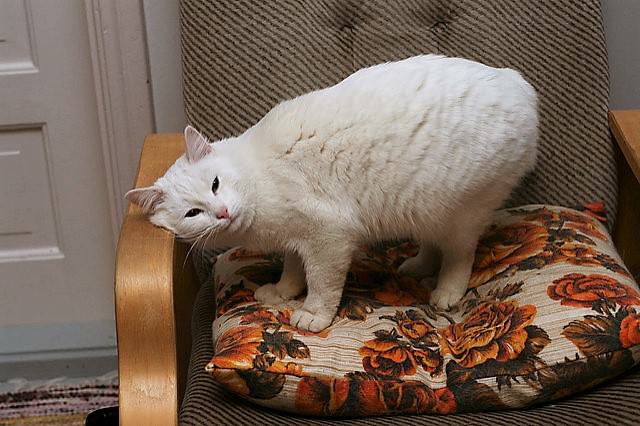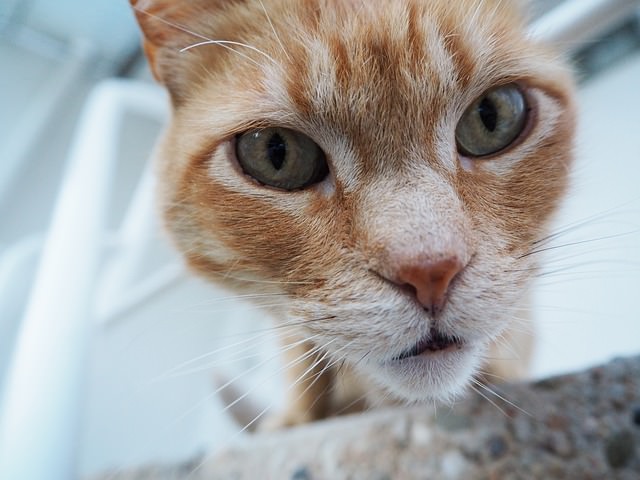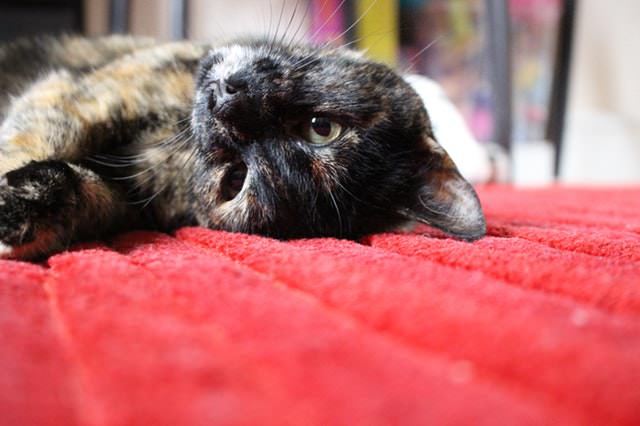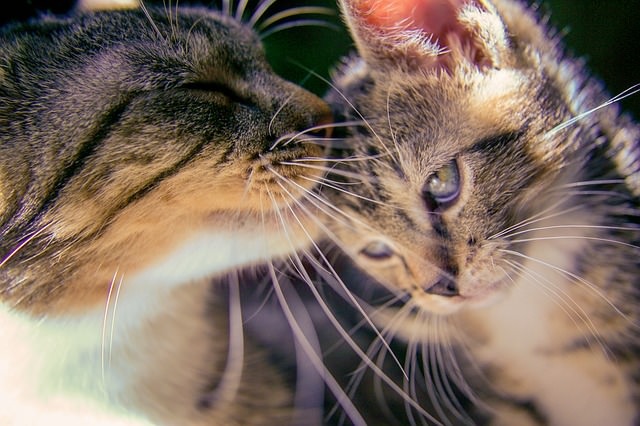Your cat’s head butts are one of the adorable reasons you love them, but those fuzzy boops don’t always mean what you think they do. Cats rub their heads on everything from their owners’ legs to the side of the couch, and interpreting the behavior is all about understanding the feline thought process and body language.
Cats are scent-reliant animals, and their olfactory system has a number of uses. You can’t see them, but cats have multiple scent glands located on their heads. They’re around the mouth, on the sides of the face, and by the ears. The reasons behind your cat’s head-booping behavior has to do with those glands.
Marking Their Territory
Technically called “bunting,” cats rub their faces on inanimate objects to mark their territory. They spread their scent on the things they stake claim to as both a message and a warning to other animals. It isn’t as threatening as other territorial acts, like spraying, but it still gets the point across. Bunting a favorite chair is like writing your name on your lunch and putting it in the company refrigerator. It’s not an outright “no trespassing” sign, but it’s a friendly reminder of ownership.

The Kitty Calling Card
In addition to staking a claim, leaving a scent behind is a cat’s way of communicating with other felines. When they rub their head against the corner of a wall, a box, or another favorite item, they’re leaving a message for every cat that comes after them. Visiting felines need only to take a whiff, and they’ll know exactly who’s been there, when they were there last, and what their intentions are. Cats looking to avoid confrontation will take the hint and steer clear of the area, but scents can also be used to attract potential mates.
Gathering Information
The feline scent messaging system is a two-way tool. When a cat approaches a stranger, for example, they may rub their head on their pants, but the familiar gesture isn’t a greeting. It’s their way of catching a scent to interpret the situation. Whether the stranger is feline, human, or even canine, they’ll learn everything they need to know with a few head boops. People often misinterpret this behavior as a friendly invitation, but that isn’t always the case. If the cat doesn’t like what they smell, your approaching hand could be seen as a threat.
Showing Affection
That pesky language barrier keeps you from knowing exactly what your cat feels about you, but in some cases, those head butts mean just what you were hoping for. Rubbing their faces on their owners’ releases kitty pheromones that promote comfort and a feeling of overall well-being. If the cat you’ve had for years likes to climb into your lap and promptly attack you with a barrage of fuzzy head butts, it’s their way of showing affection. In feral colonies, cats bunt each other to show who their friends are, and house cats do the same with their humans.



